Early Release Weekly Newsletter
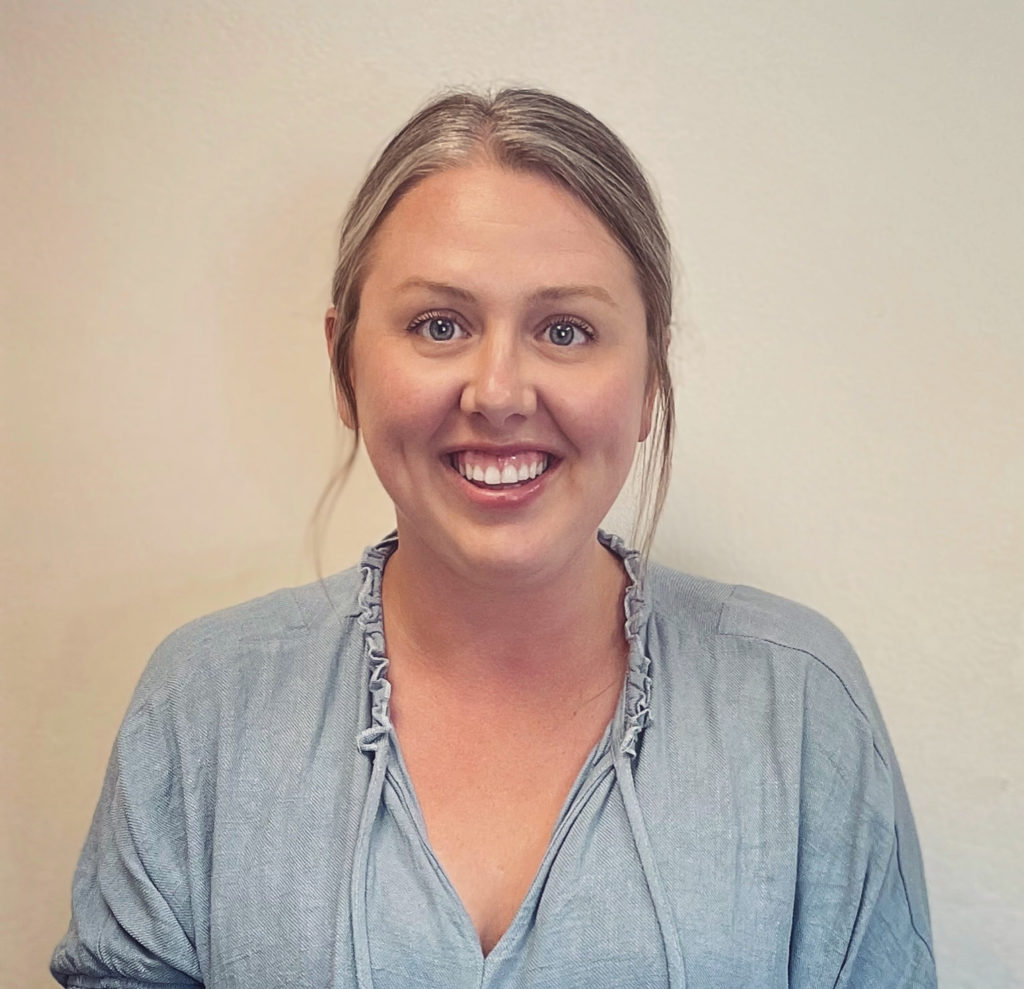
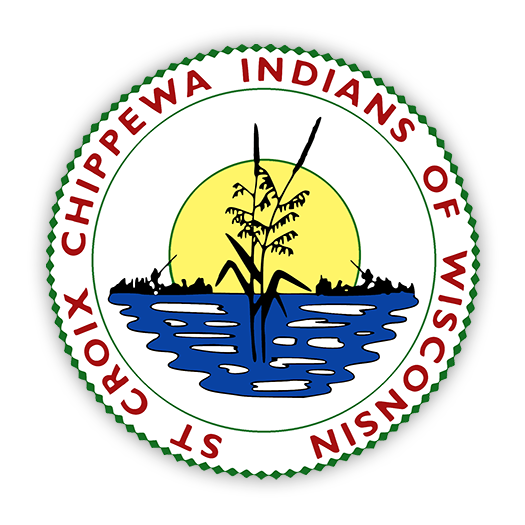
Behold our Heritage, Share our Future
PROPERTY PURCHASE
361 175th Ave, Turtle Lake, WI 54889
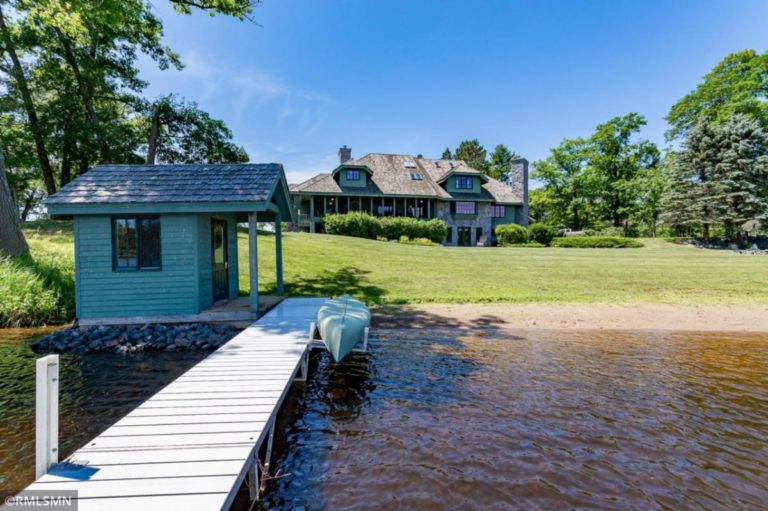
On October 17th, 2022, the St. Croix Chippewa Indians of Wisconsin (the “Tribe”) closed on a property in Turtle Lake, Wisconsin. The property contains a 7300+ square foot, 5 bed, 4 bath home, 831 acres of land, an equestrian building with stables, 2 private lakes (Sugarbush and Snake), and 20+ miles of trails.
The Tribe will be hosting an Open House on Monday, October 31st, 2022, at the property. The Open House will be from 11am-3pm, with a feast at 12pm noon. Tribal elders are permitted to attend with paid time off, others are encouraged to attend with approval from their supervisor and by utilizing vacation time. Open House guests are encouraged to bring ATVs, UTVs, or bicycles to explore the trails.
*Please note, there will be photography and videography at this public event. All attendance at the Open House is done so with the understanding you may be captured in photos or video.
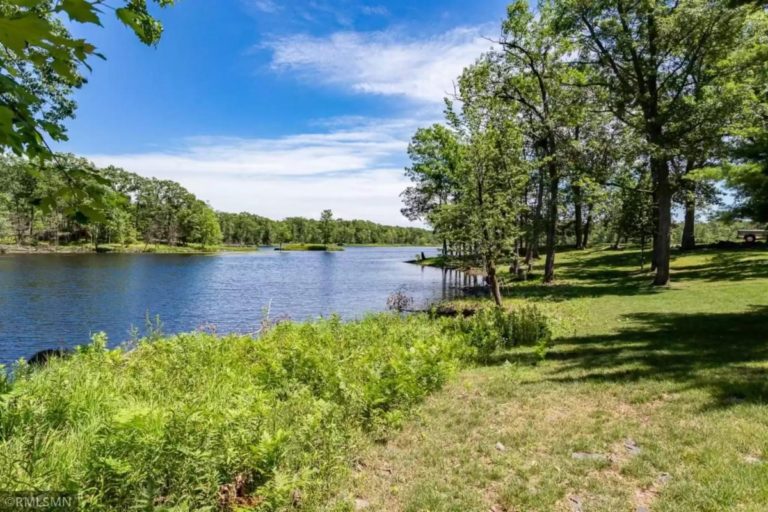
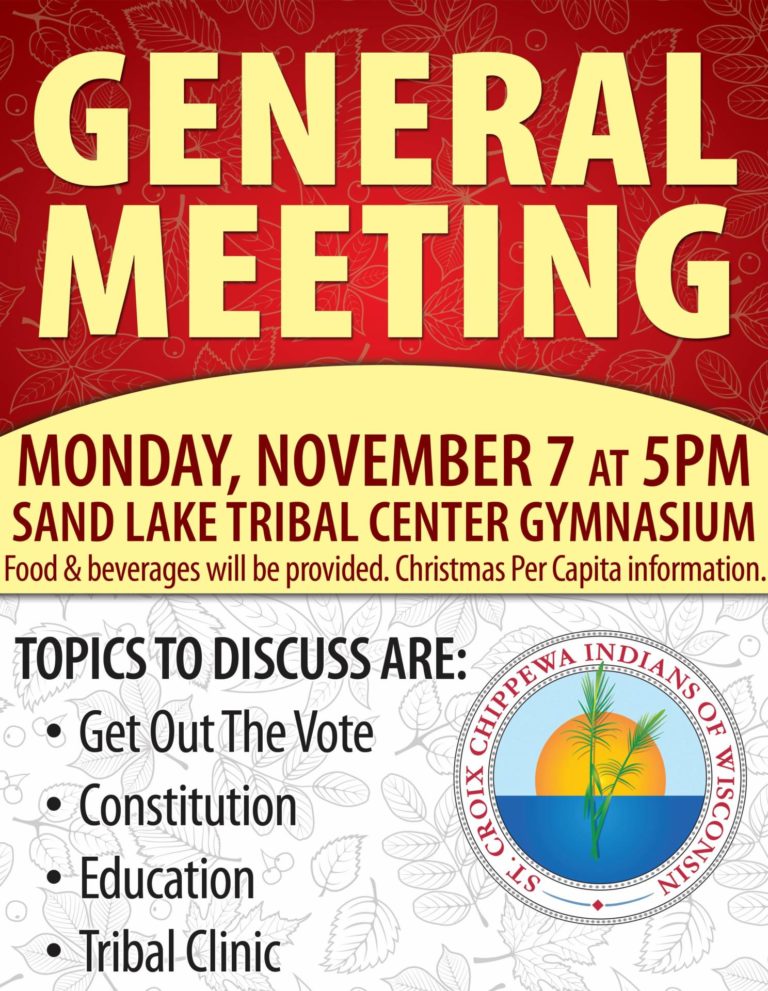
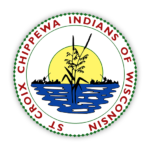
Tribal Government Job Openings
Paraeducator/NA Liaison (Spooner School)
Full job descriptions are available by clicking on the job titles. Please contact Tiffany Iorns, [email protected] or ext. 5196, for additional information.
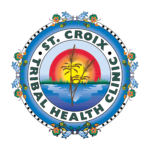
HHS Job Openings
BH Grants Manager/Case Manager
Full job descriptions are available by clicking on the job titles. Please contact Shaurette Reynolds, [email protected] or ext. 5133, for additional information.
Please spread the word to your friends and family members about our open positions!

This message is being brought to all staff (and any visitors) of Tribal government and Enterprise parking lots and frontage roads. The speed in which vehicles are driving through the various parking lots and frontage roads is excessive. Security and Tribal Police are asking all staff to check their speed when coming to, and leaving from, work. In addition, please remind any visitors you may have coming into the lots of this speed issue. If you see something, say something!
Tribal Police is prepared to ticket drivers as this is becoming a serious safety concern.
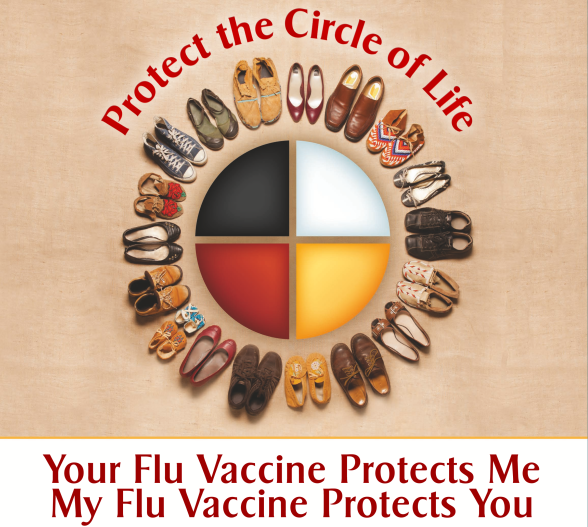
Flu Vaccine Clinic
Thursday, November 3rd from 10am-2pm
If you would like a flu shot but cannot make this date or timeframe, please call the Tribal Clinic at #715-349-8554.
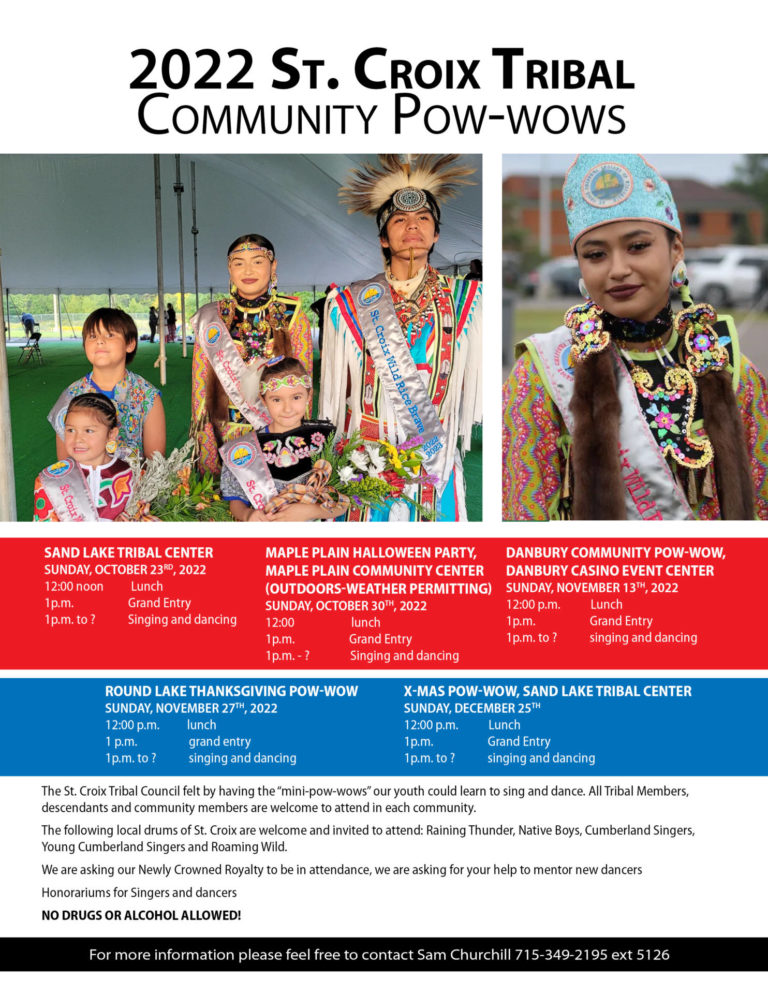
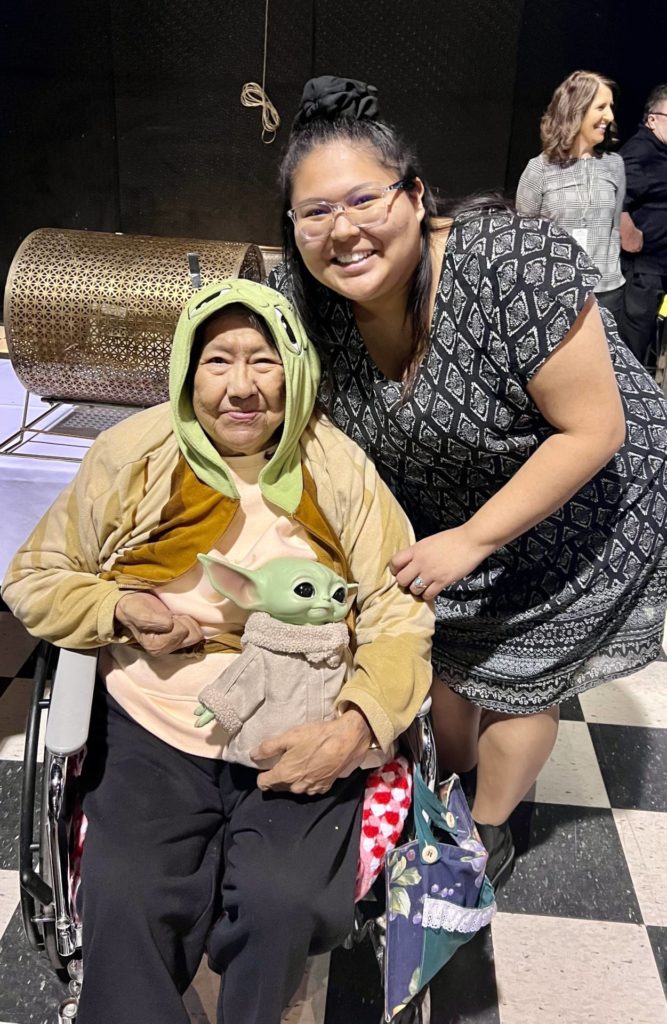
October Elder Luncheon
The Elder Luncheon was on Thursday,
October 27th. There was a Halloween theme and many elders dressed up! Along
with the normal activities of a delicious lunch, cash prizes, Turtle
bucks, and giveaways, there was a costume contest!
1st Place: Golden Girls
2nd Place: Clown Group
3rd Place: Raggedy Ann and Andy
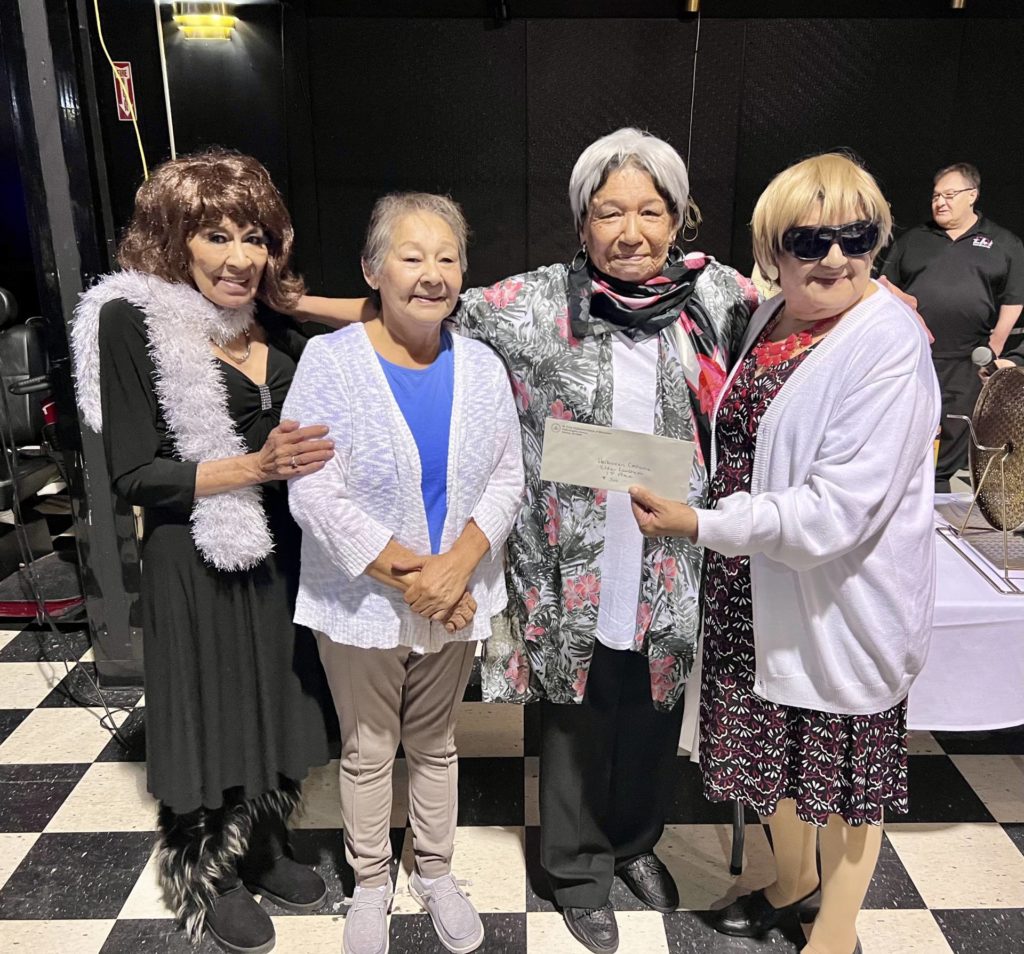
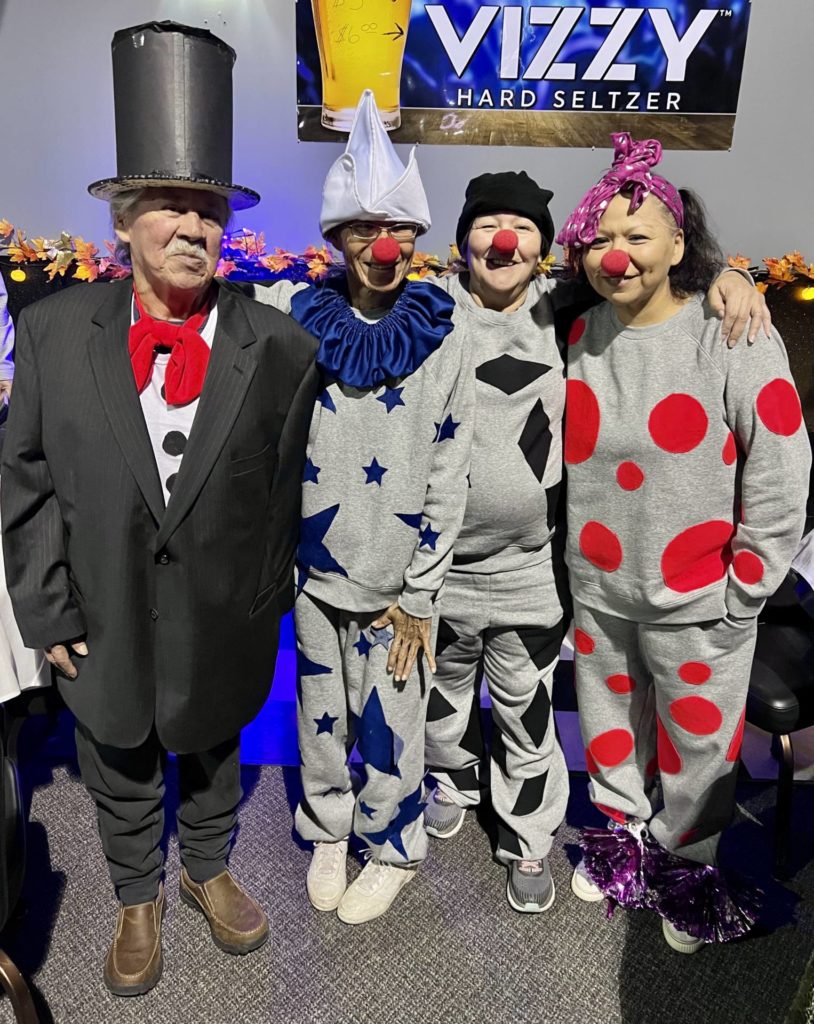
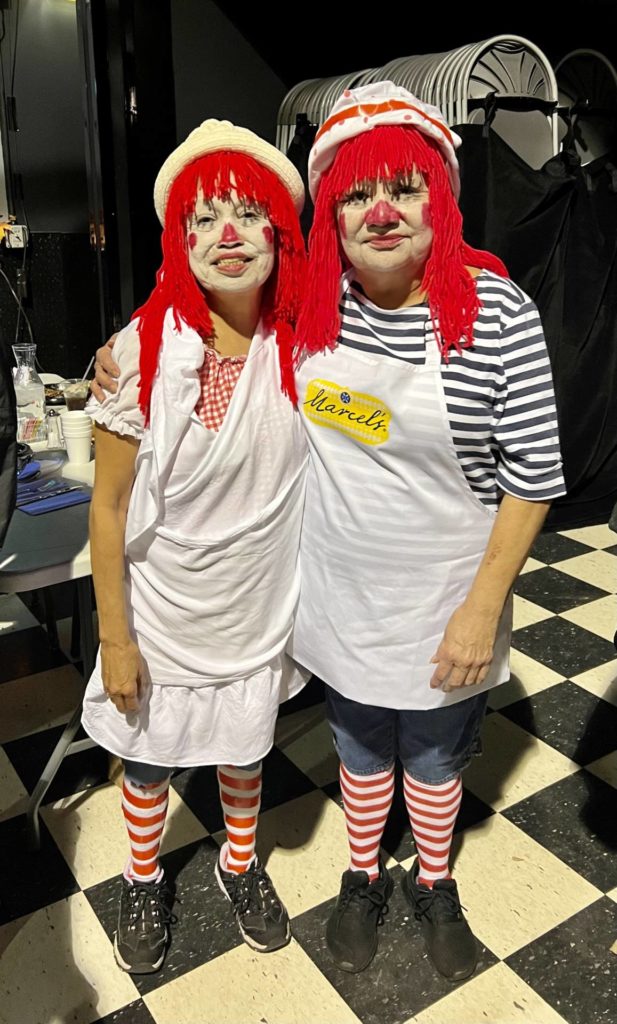
Elder Luncheon Surveys
A Tribal Clinic nurse, specializing in Public Health Emergency Plans
(PHEP), attended the elder luncheon on Thursday, October 27th. At the luncheon
she requested participation in two surveys, Severe Weather/Emergency
Preparedness and COVID. These are the results:
COVID Survey:
68 surveys were completed at the Elders Luncheon
Survey completed by men 38%
Surveys completed by women 60%
Those that did not identify 2%
Ages of those surveyed were from 36-81 years plus, with the highest population being:
24% 61-80 years old for men and
32% 61-80 years old for women
56% total in this age group
74% of the population stated they were FULLY vaccinated
50% of the population stated they have been clinically diagnosed with COVID at some point
The population reported the following COVID symptoms:
- 19% Fever
- 26% Dry Cough
- 37% Fatigue/Tiredness
- 26% Aches/Pains
- 16% Sore Throat
- 6% Diarrhea
- 4% Conjunctivitis
- 19% Headaches
- 13% Loss of Taste or Smell
- 9% Difficulty breathing or Shortness of Breath
- 9% Chest pain or Pressure
- less than 2% reported “cold like symptoms”, runny nose, rash on skin, discoloration of fingers/toes.
We can see from this small survey what is being reported as the most common COVID symptoms in this population (fever, dry cough, fatigue, aches/pains, headaches).
We know from this small population surveyed that a high number, 74% are fully vaccinated, yet 50% of this population still tested positive for COVID.
However, what we do not know is if a positive COVID test was before being vaccinated, or after. On average 28% of people ages 61-80 have tested positive for COVID (10.6 people per 38). In a population of 200, that could mean 55.8 people would have tested positive for COVID. Imagine being in a room with 56 out of 200 people that could be COVID positive.
Severe Weather/Emergency Preparedness:
70 surveys were completed at the Elders Luncheon
- 30% of the population DO NOT have a HOME EMERGENCY KIT
- 59% of the population said they DO HAVE a 3-day supply of food
- 31% of the population DO NOT HAVE an emergency car kit
- 54% of the population DO carry a flashlight in their car
- 50% of this population DO NOT HAVE an emergency preparedness plan
- Of those that do have a plan, 28% practice that plan one time a year or less, 20% of this population said they do not need to practice
- 34% of the population said they are UNSURE if their family knows what to do if they are separated during a disaster. 44% said their family knows what to do
80% OF THE POPULATION KNOWS THAT A WEATHER WARNING IS THE MOST SEVERE WEATHER TERM
Danbury Lodge – POOL UPDATE
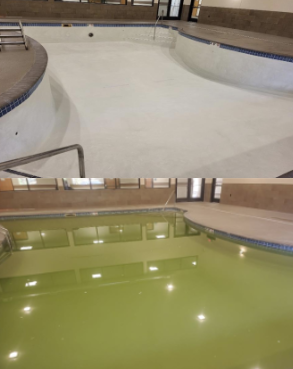
Status Update
· Pool skim coat completed
· Pool filled with water
Next Up
· Pool water quality improvement
· Begin heating pool water
· Install pool accessories
Clean pool room

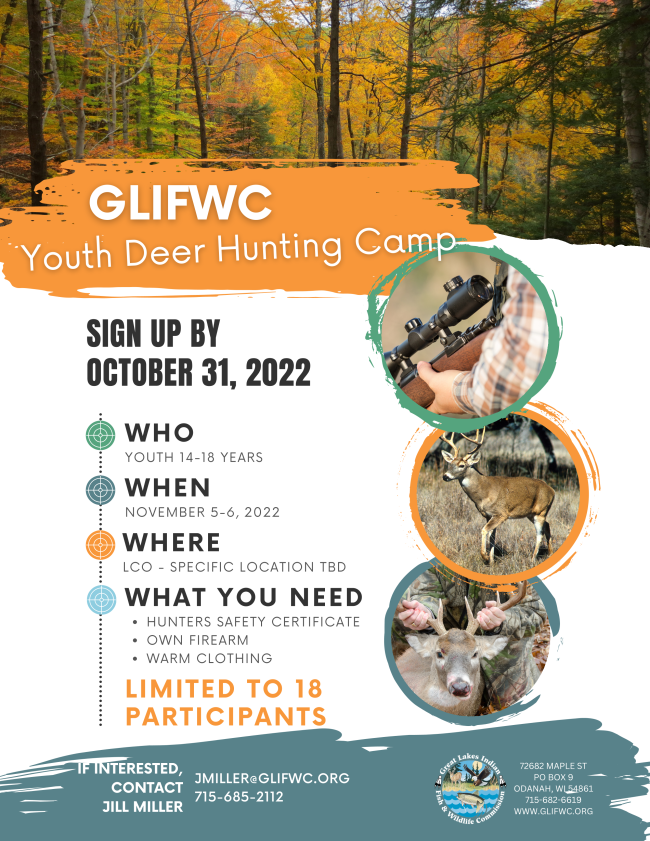
Questions? Contact Frank Taylor at 715-349-8638 ext. 7006.
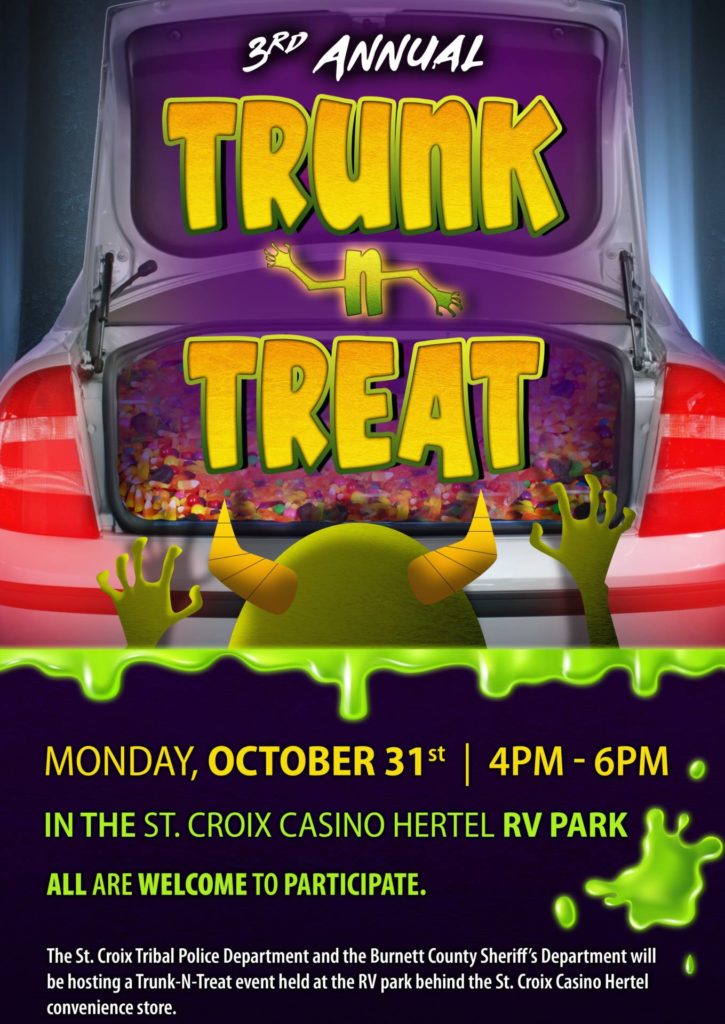
If you have the ability to participate in the Trunk n Treat, please reach out to Frank Taylor at 715-349-8638 ext. 7006. We need increased participation to continue the event in years to come!
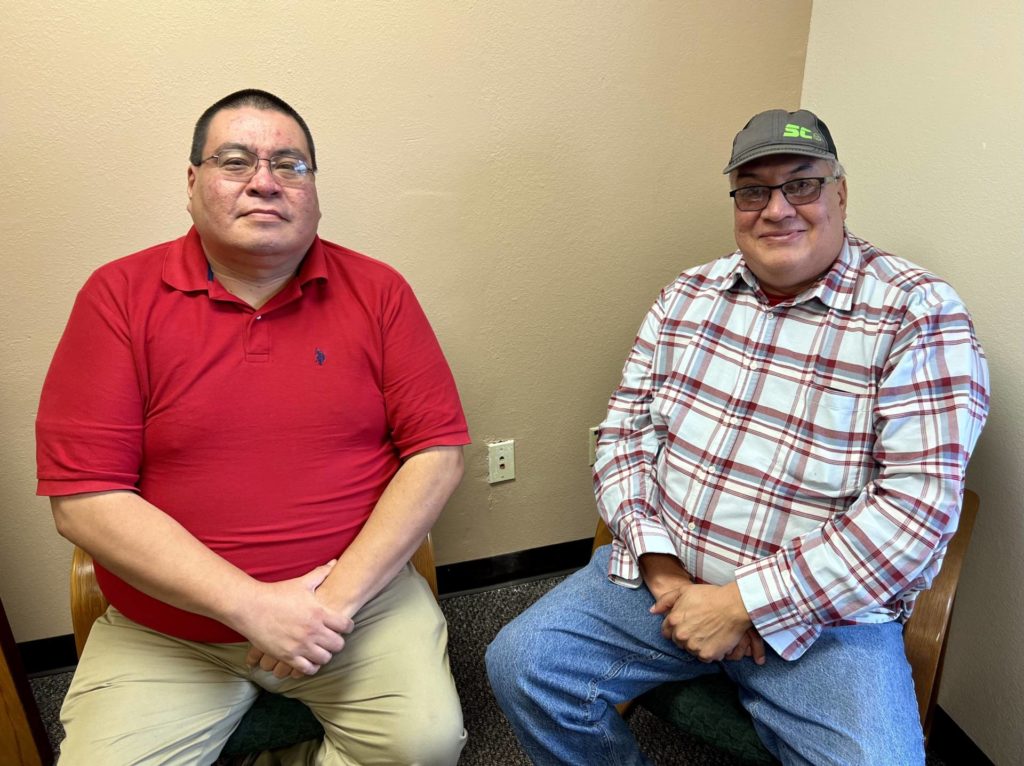
Sales Tax Relief – Tribal Members Living of Tribal Land
· Do you live within the Reservation boundaries?
· Are you tired of paying Sales Tax on your utility bills?
· Did you know that goods and services delivered to the Reservation should be free of Sales Tax?
· Bring in your utility bills and Neil Oustigoff Sr. or Jeff Taylor will help you complete the required paperwork to receive tax exempt status!
· Direct TV, Dish Network, Cable, Telephone, Propane, Electric!
Please join them at your local Tribal community center!
Round Lake – November 16th from 10am-12pm noon
Maple Plain – November 16th from 1pm-3pm
Danbury – November 17th from 1pm-3pm
Sand Lake – Stop anytime during Tribal Center business hours!
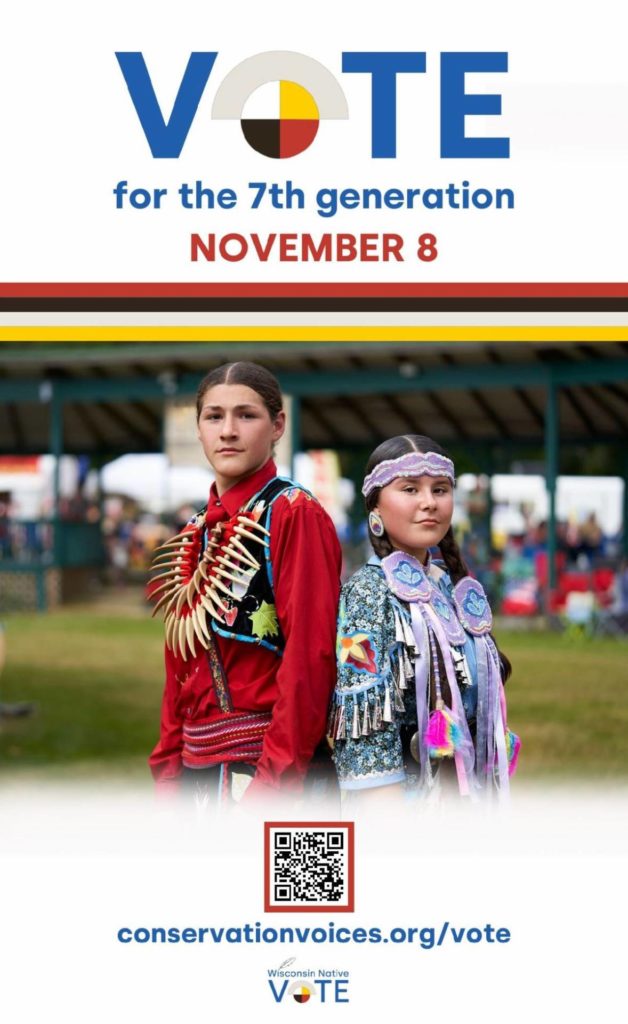
Harvesting our Power as Native Voters
By Denise Sweet
Native Vote Manager
Wisconsin Conservation Voices
Fall can be a time of mixed emotions. The inevitable oncoming winter and earlier sunsets can have a serious effect on mental health. And Halloween costumes give me caution, as I have seen all too many Indian costumes year after year. But fall also brings the harvest – wild rice, squash, and numerous other vegetables that Mother Earth provides us. It is a time to celebrate the bounty we have and the people in our lives.
And this fall brings the opportunity to vote for our future. On Nov. 8, Wisconsin has its midterm elections which will determine our new governor, U.S. Senate seat, and many other local officials. As leader of Wisconsin Native Vote, this fall I am focused on making it known that the voices of our people are powerful. Powerful tools for healing and for securing a better future for all of us. In Native Vote’s work I witness that power. And, as Election Day nears, I am encouraging all of us to join our voices together, to use our combined power to harvest a different, but important crop – our representation.
Invisible, even to ourselves
Professor and author Dr. Anton Treuer (Ojibwe and Leech Lake) once said, “Sometimes we are invisible, even to ourselves.” That quote sits with me. It reminds me that Indigenous faces and Indigenous voices are too often absent from the everyday experience in our society. That’s why our votes for our interests are so important. Halloween and popular culture have their ways of making us feel invisible. I’ve seen countless children dressed up as Native Americans with their generic headdresses and bow and arrows. We are used to seeing old Western movies portraying “savage Indians” alongside heroic cowboys, Indian mascots for sports teams, even Indian maidens on boxes of butter.
The images we see
But as Native people, those images and costumes say something more. They say that we only exist in the past and all of us – all of our many different tribes and customs – can be lumped together as one image. Mascots are never neutral symbols. They are exaggerated caricatures never intending a positive representation. Those stereotypes are harmful to all of us – especially our children. It’s part of growing up in a society that tells you that you are invisible, part of the past. This has serious impacts on mental health that persist through generations.
Our many positive role models
Although there are plenty of negative images out in the world, I encourage you to look at the many Native people who have spoken out against Native mascots and who stand as positive role models for our people. Here is just a sample:
Mark Denning (Menominee), a close friend of Wisconsin Native Vote, who has stood up against racial stereotypes here in Wisconsin and contributed to the removal of Native mascots in sports teams.
Ayanna O’Kimosh (Menominee) is in ninth grade and a professional boxer. She has won a Silver Gloves National Championship and multiple state and regional Silver Gloves Championships – all while advocating for Missing and Murdered Indigenous Women and Girls (MMIWG).
Nicole Mann (Round Valley Indian Tribe) is currently serving as the mission commander for the SpaceX Crew-5 mission and is the first Native American woman to go into space. The crew launched last Wednesday and my favorite part – she took an Ojibwe dream catcher into space!
Wes Studi of the Cherokee Nation is well-known for his career as an actor and film producer, particularly for his portrayal of Native Americans in film. In 2019, he received an Academy Honorary Award, becoming the first Native American and the second Indigenous person from North America to be honored by the Academy.
Jonas Metoxen (Oneida) played fullback for the Green Bay team before they were the Packers after attending the Carlisle Indian School from 1891 to 1900. Oneida historians report that there were many more unpaid Oneida tribal members who played early on for what is now known as the Green Bay Packers.
I could go on and on, but I encourage you to be inspired by the many Native people who have worked to better the lives of our future generations. Like them, we have the ability to take our future into our own hands and vote. This is about sovereignty, and the concept of the Seventh Generation. Both have guided and sustained us through times of struggle and times of rejuvenation. When we vote, we are ensuring our children and the seven generations who come after us have lives free of harmful images – and can feel confident in their culture and identity.
A different harvest
This fall, cherish the harvest of Mother Earth’s gifts – wild rice and other vegetables tended to throughout summer as they offer up their nutrition with winter upon us. The love with which we tend to these gifts, to help them come to fruition, is shared with family and friends – their power to keep us healthy is multiplied. Protecting our waters, the wild rice harvest, our identity and culture, and our personal and communal health takes a heightened position this time of year. And it’s in that same spirit that I encourage you to nourish these things by preparing to cast a vote on Nov. 8. By making your voice heard in these elections, you have the power to safeguard the things you care about most. It is a different kind of harvest, but an important one.
How to vote
The polls are open on Election Day, Tuesday, Nov. 8 from 7 a.m. to 8 p.m. You can find your polling location at myvote.wi.gov/find-My-Polling-Place.
When you vote, make sure to bring a photo ID with you. The most common IDs are a Wisconsin tribal ID, Wisconsin driver’s license, Wisconsin DOT-issued ID card, military ID, or U.S. passport.
If you are not yet registered to vote, you can vote in-person at your polling place. Bring a proof of residency document with you to register. This can be your Wisconsin driver’s license, utility bill, letter from your tribal government, or a number of other documents.
You can visit our website at www.conservationvoices.org/vote for all the voting information you need. For questions about voting, call the Election Protection hotline at 866-OUR-VOTE. Decisions are made in every election that will impact the course of history, the course of our history. Make sure your voice is heard, as well as the voices of your parents, your brothers and sisters, your aunties and uncles, and your friends.
Vote for the future of our planet.
Vote for the future of our children.
Vote for the Seventh Generation.
Denise Sweet works with tribal leaders, activists, and partners to engage Native Americans in the electoral process through her role as manager of the nonpartisan Wisconsin Native Vote program.
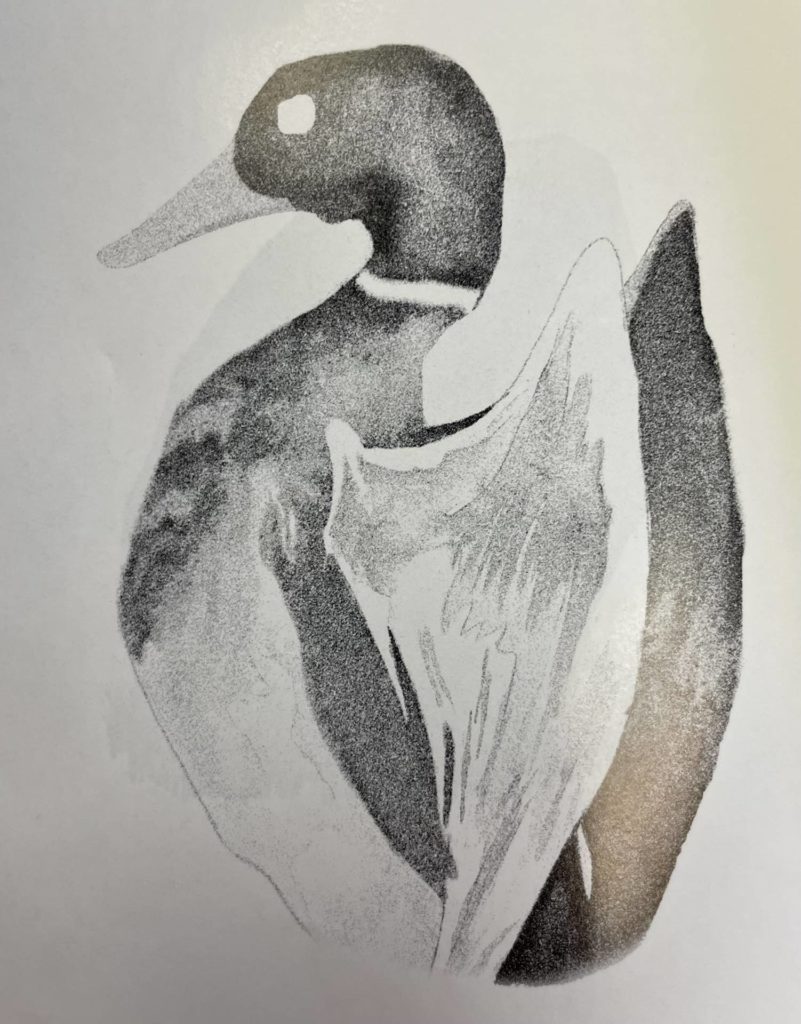
Zhaawanong izhaa Wenabozho
Manidoo-bizhiki [Doug Sam]
Aabiding Wenabozho, dagwaagig azhigwa, mii akina gii-maajaawaad ingiw bineshiinyag miinawaa zhiishiibag. Gawaji-ige, bimose, mawid gaa-zhi-dagoshing imaa. Gaa-izhi-inaabid imaa agaaming. Mooshkinebiiwag imaa? zhiishiibag. Ganawaabamaad gaa-zhi-mikwendang ge-izhichiged. Gaa-baa-izhi-naadid wiigob. Biminikwaanensan gaa-izhitood. Makak gaa-izhitood gaa-izhi-googiid imaa ziibing. Baa-dakobinaad imaa kaadensan zhiishiiban. Ooo aaniish naa heeeeyyyyy! Gaa-maajiibizowaad inishibag apane shaawanong. Mii ge Wenaboozhoo gii-maajaad. Mii sa namanj apii. Namanj ige gaa-ondinamogwen ni wiigob miinawaa i’iw makak gii-izhitood iw wiigwaas. Aaniish naa manidoo iidog aw Wenaboozhoo.
“One time Wenabozho, it’s fall now, all the ducks and the birds had left. He’s freezing; he’s walking; as he’s crying, he arrived there. He looked out on the lake. The lake was full of ducks. As he was watching them, he thought of what he was going to do. He went out and got some basswood bark. He made some rope. Then he made a basket and dove into the river. He went around tying the ducks legs. “Heyyy!” The fall ducks took off to the south. Wenabozho left too. I don’t know when this was. I also wonder where he got the basswood bark and how he made a birch bark basket. Well then, he is a spirit.”
Great Lakes Indian Fish & Wildlife Commission (2013). Dibaajimowinan – Anishinaabe Stories of Culture and Respect.
If you would like an item featured in the weekly newsletter, please email Maggie Olson at [email protected].
Leave a Reply